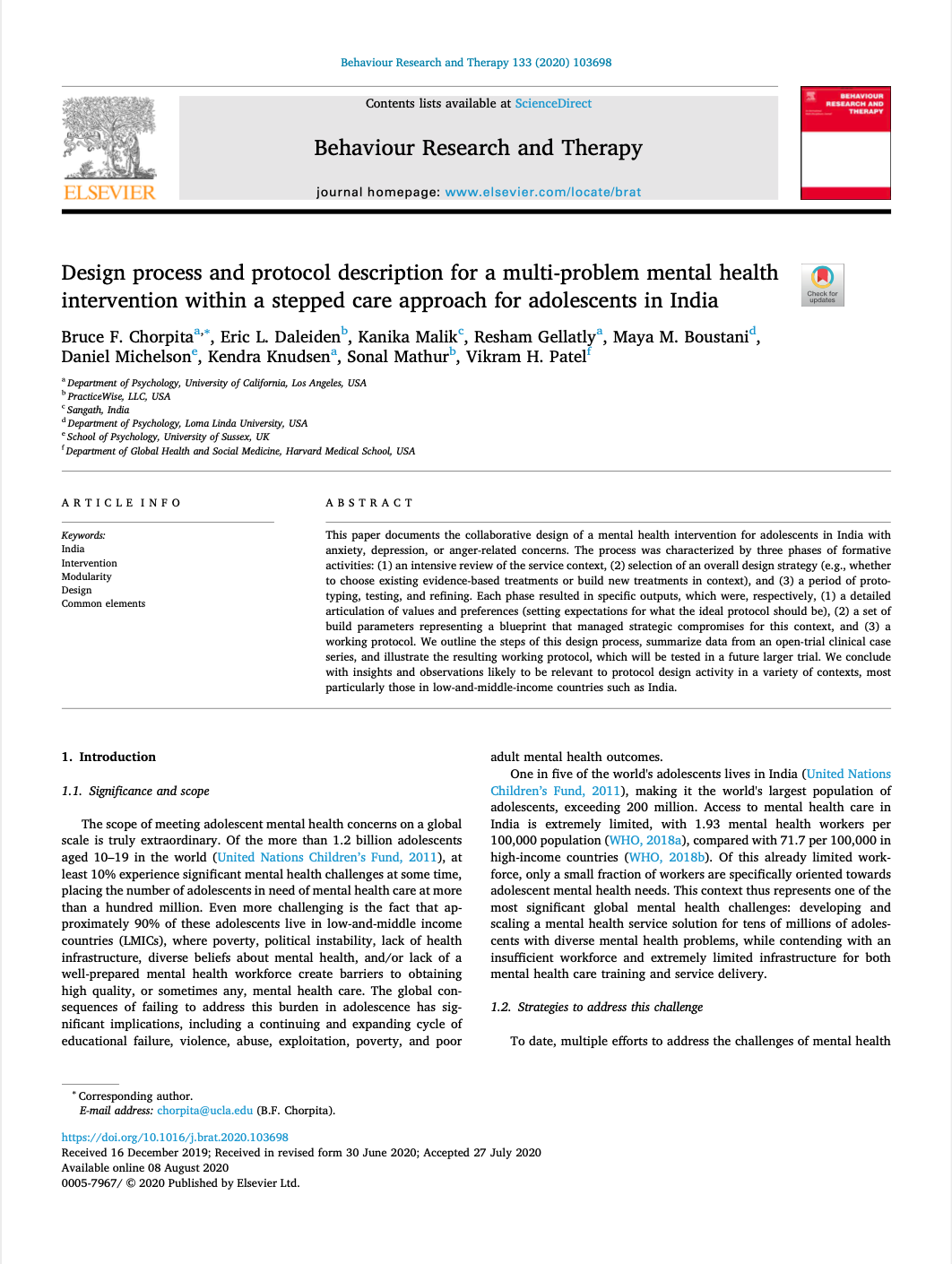Design process and protocol description for a multi-problem mental health intervention within a stepped care approach for adolescents in India

This paper documents the collaborative design of a mental health intervention for adolescents in India with anxiety, depression, or anger-related concerns. The process was characterized by three phases of formative activities: (1) an intensive review of the service context, (2) selection of an overall design strategy (e.g., whether to choose existing evidence-based treatments or build new treatments in context), and (3) a period of proto- typing, testing, and refining. Each phase resulted in specific outputs, which were, respectively, (1) a detailed articulation of values and preferences (setting expectations for what the ideal protocol should be), (2) a set of build parameters representing a blueprint that managed strategic compromises for this context, and (3) a working protocol. We outline the steps of this design process, summarize data from an open-trial clinical case series, and illustrate the resulting working protocol, which will be tested in a future larger trial. We conclude with insights and observations likely to be relevant to protocol design activity in a variety of contexts, most particularly those in low-and-middle-income countries such as India.
Full text available here: Chorpita et al (2020)



